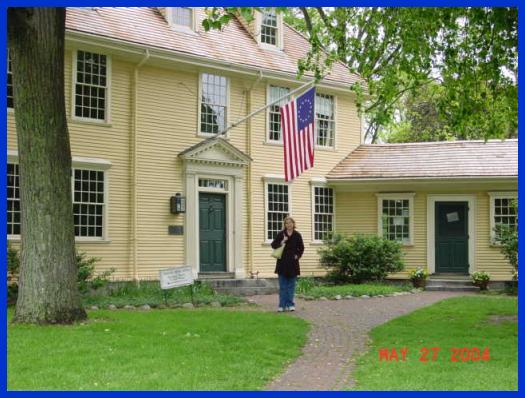
We finally got to the place where the American Revolution began. Lexington and Concord are now Boston suburbs (they were Boston suburbs back then too, but it took longer to get around) and some of the most pleasant towns I have seen and especially so on this pleasant day in May. There are many very big trees, flowering bushes and beautiful homes. Concord and Lexington are connected by bike and hiking trails, a nice place to live, although I am sure the local conservation committees are stricter than even the most confrontational condo boards.
Fairly busy streets now surround Lexington green. I am sure it was very different in April 1775 when British soldiers encountered Captain Jonas Parker and 75 armed Minutemen. The soldiers came to disarm the colonists. In sort of a proto NRA action, the colonists would give up their guns only when pried from their cold dead hands. The British obliged, killing 8 Minutemen and injuring 10 others. We think of it as a war between Americans and the British, but there were no Americans at that time. British colonist militia faced British troops. When Paul Revere rode out, he didn’t say, “the British are coming.” That would have made no sense to the colonists who still thought of themselves as British, albeit disgruntled progeny of Albion. He just told everyone that the regular troops were on the way. I am sure the colonists were surprised when some of them got shot by their own king’s men. The price of protest had risen sky high. (By the way, the best book to read about this is a novel by Howard Fast called “April Morning”.)
Chrissy and I followed the same route as the British troops from Lexington to Concord and stood on North Bridge, where the Concord battle took place. By the time the British regulars got to Concord, the colonists were ready. This time armed militia had gathered from the villages and farms and this time they inflicted casualties on the British regulars. The colonists might not have been soldiers, but life on a frontier had made them extremely warlike – and able marksmen. As the British regulars retreated toward Boston, everybody came out of his house to shoot at them. It was a hard road to travel. Now the area around it is tree covered. In those days it was mostly open fields and farms, which would have been almost bare in April. There was nothing to conceal marching troops in easy to see red uniforms. On the other hand, the roads and fields were lined with stone walls providing cover for the snipers, who would shoot and run off. They knew all the shortcuts. The fighting on that April day is shrouded in a historical mist. Nice old ladies at historical societies smile when they describe the British retreat with the colonists in hot pursuit. It seems like a game from our distance, at worst hard-hitting game between the Yankees and Red Sox, but it was deadly nasty business all around, a civil war beginning and a world turning upside down.
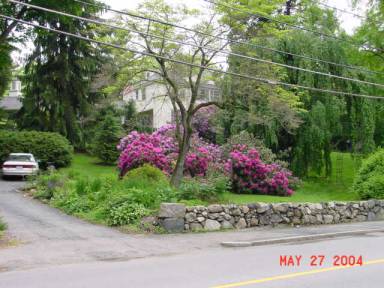
Nice houses in Lexington 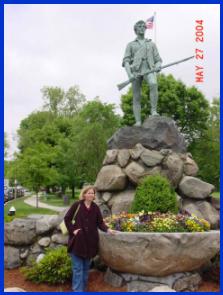
CJ in Lexington 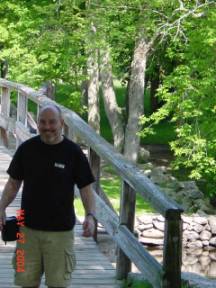
By the rude bridge that arched the flood, Their flag to April’s breeze unfurled, Here once the embattled farmers stood, And fired the shot heard round the world. – Concord Hymn by Ralph Waldo Emerson 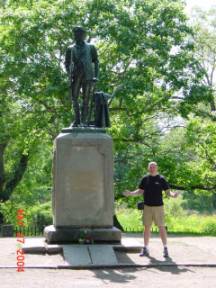
JM at North Bridge in Concord and with Minute Man statue. Notice the new haircut. When you are going bald, embrace it.
